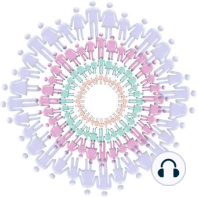8 min listen

Kohlberg Stages of Moral Development
Kohlberg Stages of Moral Development
ratings:
Length:
8 minutes
Released:
May 26, 2023
Format:
Podcast episode
Description
Lawrence Kohlberg, a psychologist who built on Jean Piaget's work, developed a six-stage model of moral development in the mid-20th century. His theory asserts that moral development, like cognitive development, follows a series of stages that people progress through as they mature.The first two stages, known as the "Pre-conventional Level," are typically found in young children. The most basic stage, 'Obedience and Punishment,' is where morality is driven by a direct response to punishments and rewards. For example, a child may perceive a behavior as right if it helps avoid punishment. The second stage, 'Individualism and Exchange,' involves recognizing that there isn't just one right view imposed by authorities. People in this stage can differentiate their own interests and needs from those of authorities.The "Conventional Level" includes the third and fourth stages. 'Interpersonal Relationships,' or the "good boy/good girl" stage, is when social approval and maintaining relationships become more important. Behaviors are evaluated based on their ability to please others and maintain social harmony. The fourth stage, 'Maintaining Social Order,' entails recognizing the importance of law and order for society. Individuals in this stage respect authority and rules to maintain societal structure and cooperation.Finally, the "Post-conventional Level" encompasses the final two stages. The fifth stage, 'Social Contract and Individual Rights,' sees laws as changeable structures that exist for the good of the society. Individuals may disobey rules if they find them unjust, favoring democratically agreed upon laws. The sixth stage, 'Universal Ethical Principles,' is not reached by most adults. It's characterized by adherence to self-chosen ethical principles that are universal, such as justice, dignity, and equality. At this stage, laws are validated by these principles, and if laws are in conflict with them, these principles take precedence.Kohlberg's theory has been highly influential in fields like psychology, education, and ethics. It provides a framework for understanding how moral reasoning changes over time, though it's important to note it focuses on moral thinking rather than action. Critics argue that it may be culturally biased, overly focused on justice, and doesn't adequately address gender differences in moral reasoning.Despite these criticisms, Kohlberg's stages of moral development still form an integral part of our understanding of moral evolution in individuals. It pushes the debate beyond whether an action is right or wrong and into the realm of why people believe an action to be right or wrong and how these beliefs evolve over time.If you need to study for your NCMHCE narrative exam, try the free samplers at: CounselingExam.comThis podcast is not associated with the National Board of Certified Counselors (NBCC) or any state or governmental agency responsible for licensure.
Released:
May 26, 2023
Format:
Podcast episode
Titles in the series (68)
Kohlberg Stages of Moral Development by Passing your National Licensing Exam